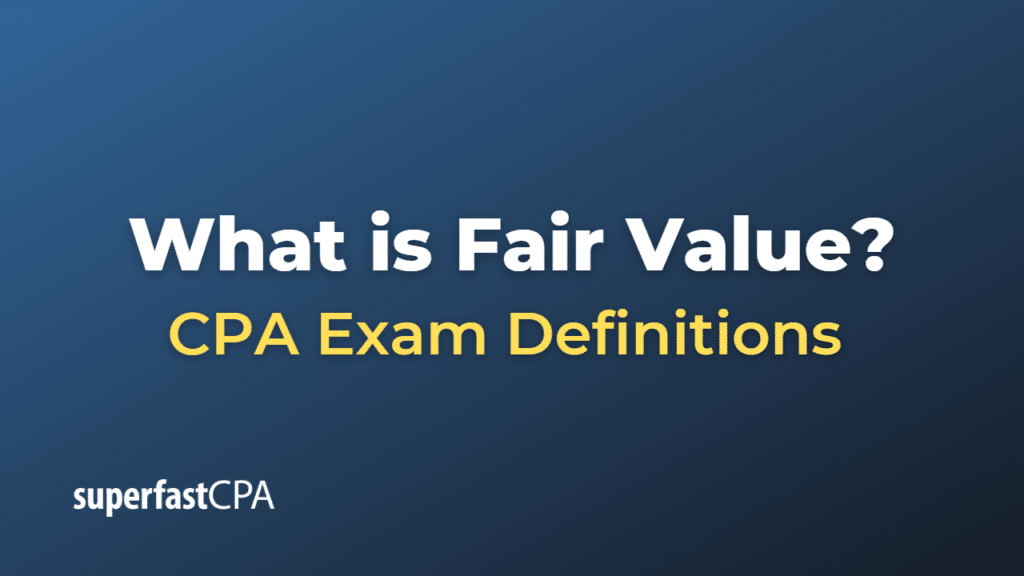Fair Value
Fair value is a financial measure that is used to estimate the market value of an asset or liability. It represents the amount at which the asset could be bought or sold in a current transaction between willing parties, other than in a liquidation sale. The concept of fair value is widely used in accounting and in financial markets.
Fair value is considered a rational and unbiased estimate of the potential market price. It is based on market conditions at a specific point in time and might not represent the actual cash value.
Fair value can be determined through the following methods:
- market price: If the asset or liability is traded in an active and open market, the current market price or the recent transaction price can be considered its fair value.
- Income Approach: This method calculates the present value of the future earnings that the asset is expected to generate.
- Cost Approach: This method estimates how much it would cost to replace the asset or liability in its current condition.
In accounting, the fair value of an asset is used to provide a realistic assessment of the company’s financial situation. Assets and liabilities have to be initially recognized at their fair value according to International Financial Reporting Standards (IFRS) and U.S. Generally Accepted Accounting Principles (GAAP). Changes in fair value may also need to be recorded in the financial statements, depending on the type of asset or liability and the specific accounting standard that applies.
Example of Fair Value
Suppose a company has an investment in the stock of another company. The company holds 1,000 shares of stock, which are currently trading on the stock market for $20 per share. In this case, the fair value of the investment would be $20,000 (1,000 shares * $20/share). The company would record the investment at this fair value in its balance sheet.
Over time, the fair value of this investment can change. If the stock price rises to $25 per share, the fair value of the investment would increase to $25,000. Depending on the accounting rules that apply, the company might need to record this increase in fair value in its financial statements.
Alternatively, consider a company that owns a building and wants to determine its fair value. The building isn’t traded on a market, so its fair value can’t be determined based on a market price. Instead, the company might use an income approach, estimating the present value of the future rental income that the building could generate. Or it might use a cost approach, estimating how much it would cost to build a similar building. The company could also hire a professional appraiser to provide an estimate of the building’s fair value.
It’s important to note that fair value can be subjective and may not always reflect an asset’s or liability’s true value. For instance, during a financial crisis, the market prices of assets might drop significantly, leading to lower fair values. But if the company doesn’t plan to sell the assets and believes the drop in prices is temporary, it might argue that the fair values don’t reflect the assets’ true long-term value.













